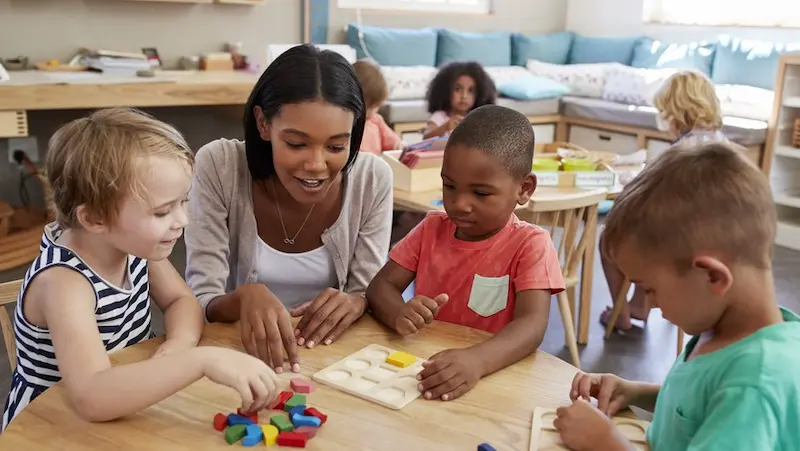Developing effective student habits is essential for academic success. In this exploration, we delve into the pivotal role of cultivating positive thinking for kids routines in a student’s life. By embracing strategies that enhance focus, time management, and learning techniques, students can unlock their full potential and thrive in their educational journey. Join us as we uncover the transformative power of these habits and their profound impact on achieving scholastic excellence.
Table of contents
Mastering the Art of Effective Learning
In our fast-paced world, the ability to learn effectively is a skill that can set you apart and propel you toward success. Whether you’re a student, a professional, or a lifelong learner, understanding the art of effective learning can significantly enhance your knowledge acquisition journey.

Active Learning Strategies for Deeper Understanding
Problem-Based Learning: Challenge yourself with real-world problems related to the subject matter. This approach encourages critical thinking skills for kids and helps them apply theoretical knowledge to practical situations.
Group Discussions and Debates: Engaging in discussions and debates with peers allows you to share perspectives, exchange ideas, and refine your understanding through healthy discourse.
Note-Taking Methods to Enhance Retention
Cornell Method: Divide your note page into sections for main ideas, key points, and summaries. This structure helps you organize information and review effectively.
Mind Mapping: Create visual diagrams connecting concepts and ideas. Mind mapping for kids provides a holistic view of the subject and aid in understanding relationships between different pieces of information.
Utilizing Technology for Efficient Learning
Online Courses and MOOCs: Platforms like Coursera, edX, and Khan Academy provide access to courses from top universities and experts, allowing you to learn at your own pace.
Digital Note-Taking Apps: Apps like Evernote or OneNote enable you to organize, search, and access your notes from any device, promoting seamless learning.
Cultivating Discipline and Focus

Overcoming Procrastination: Strategies for Timely Completion
Set Clear Goals: Define specific, achievable goals for each task. Breaking larger tasks into smaller, manageable steps makes them less overwhelming and easier to tackle.
Prioritize Tasks: Use techniques like the Eisenhower Matrix to categorize tasks based on urgency and importance. Focus on high-priority tasks to prevent time-wasting on less critical activities.
Time Blocking: Allocate dedicated time blocks for tasks on your schedule. This technique not only ensures focused work but also aids in managing time effectively.
Enhancing Concentration and Minimizing Distractions
Create a Distraction-Free Workspace: Designate a clean and organized workspace where you’ll work on tasks. Keep it clutter-free and devoid of unnecessary gadgets.
Single-Tasking: Contrary to popular belief, multitasking diminishes the quality of your work. Focus on one task at a time to enhance your concentration and productivity.
Use the Pomodoro Technique: Work in focused intervals, typically 25 minutes, followed by a short break. After completing a few cycles, take a longer break. This method prevents burnout and boosts productivity.
The Role of Health and Well-Being in Academic Performance

Balancing Academic Demands with Self-Care
The academic journey can be demanding, but finding the right balance between academic pursuits and self-care is key to sustainable success. Engaging in regular physical activity, cultivating hobbies, and spending quality time with loved ones can provide the necessary mental and emotional regulation for kids.
The Impact of Sleep on Learning and Memory
One often underestimated factor in academic performance is sleep. Sleep is not merely a time of rest; it is a critical process that aids in consolidating information and enhancing memory retention. Research has shown that adequate sleep improves cognitive functions such as attention, creativity, and logical reasoning.
Strengthening Memory and Recall
Memory Enhancement Techniques and Mnemonics
Imagine effortlessly recalling important information during exams or impressing your peers with your ability to remember complex details. Memory enhancement techniques and mnemonics are tools that can turn this vision into reality.
Acronyms: Creating acronyms by using the first letter of each item you need to remember is a powerful way to simplify complex concepts. For instance, “PEMDAS” is a popular acronym in mathematics that reminds us of the order of operations: Parentheses, Exponents, Multiplication and Division, Addition and Subtraction.
Visual Imagery: Our brains are wired to remember images more vividly than abstract concepts. Associating information with striking mental images can dramatically improve recall. Imagine learning a foreign language vocabulary by visualizing the words in a humorous or exaggerated context.
The Art of Spaced Repetition for Long-term Learning
Have you ever studied for hours, only to forget the material shortly after? This is where the art for kids of spaced repetition comes to the rescue. Spaced repetition is a technique that involves reviewing information at increasing intervals over time.
Interval Timing: The key to spaced repetition lies in strategically timing your review sessions. Begin by reviewing the material shortly after learning it, then gradually increase the time intervals between reviews.
Adaptive Learning Platforms: Modern technology has given rise to adaptive learning platforms that implement spaced repetition algorithms. These platforms track your progress and adjust the timing of your review sessions based on your performance, ensuring you focus more on the areas that need reinforcement.
Balancing Extracurricular Activities and Academics

Maximizing Productivity with Extracurricular Engagements:
Prioritize Passion: Choose activities that align with your interests and goals. When you’re genuinely excited about what you’re doing, it becomes easier to invest time and effort while maintaining your academic focus.
Set Clear Goals: Define what you hope to achieve in both academics and extracurriculars. Establishing clear objectives will help you stay motivated and track your progress in both areas.
Effective Multitasking: Seamlessly integrate your extracurricular commitments with your academic schedule. Look for ways to merge tasks or find synergies that allow you to work on both fronts simultaneously.
Time Management for Involvement in Clubs and Sports:
Create a Schedule: Develop a weekly schedule that accounts for classes, study sessions, and extracurricular activities. Allocate dedicated time slots for each, ensuring you strike a balance between the two.
Use Technology Wisely: Leverage apps and tools to stay organized. Calendar apps, to-do lists, and task management platforms can help you keep track of deadlines and commitments.
Learn to Say No: While enthusiasm is commendable, avoid over-committing. Prioritize your well-being by carefully selecting the number of extracurricular activities you engage in, ensuring you have ample time for both academics and personal time.
Conclusion
In conclusion, cultivating and sustaining effective student habits is paramount to achieving academic success and personal growth. By consistently prioritizing time and stress management for kids, active learning, and growth mindset activities for kids, students can unlock their full potential and navigate their educational journey with confidence and purpose. Embracing these habits not only enhances academic performance but also fosters lifelong leadership skills for kids essential for future endeavors.
Also, BrightChamps provides a comprehensive platform for learning about money for kids, offering interactive and engaging resources that teach financial literacy, budgeting, saving, and other essential money management skills.
Frequently Asked Questions
A1: Effective student habits play a crucial role in maximizing your academic potential by fostering discipline, time management, and consistent progress in your studies.
A2: Effective habits create a structured routine, enhance focus, and improve learning outcomes, leading to higher grades and a deeper understanding of subjects.
A3: Examples include setting specific study goals, maintaining a dedicated study space, using study techniques like active recall, and managing time efficiently.
A4: Yes, adopting effective habits can greatly enhance time management skills, helping you allocate time for studies, assignments, and leisure activities more efficiently.
A5: Effective student habits provide a framework to combat procrastination by breaking tasks into smaller, manageable steps and creating a sense of accomplishment.
A6: No, effective habits extend beyond studying; they encompass aspects like maintaining physical and mental well-being, balancing extracurricular activities, and fostering positive relationships.
A7: Absolutely, cultivating effective student habits instills lifelong skills such as self-discipline, organization, and critical thinking, which contribute to sustained academic achievement.


 We are an army of educators and passionate learners from BrightChamps family, committed to providing free learning resources to kids, parents & students.
We are an army of educators and passionate learners from BrightChamps family, committed to providing free learning resources to kids, parents & students.













